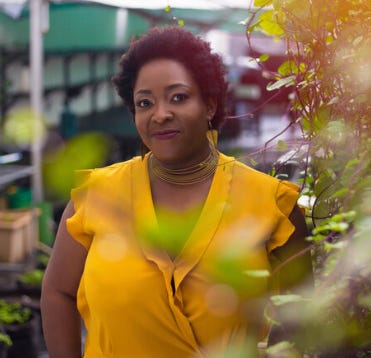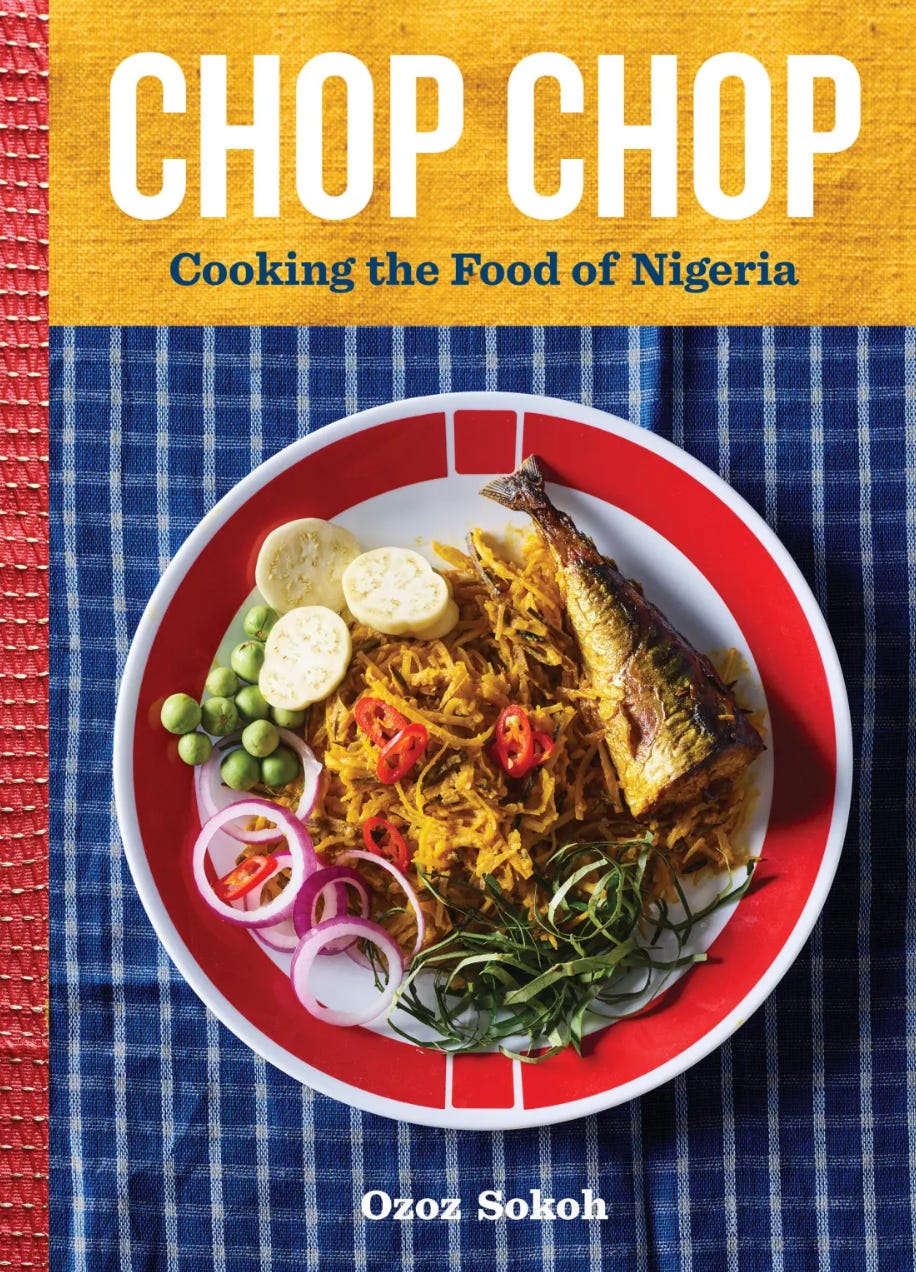There is NO cost to sign up for this newsletter, but subscribing means you’ll receive new posts and stay up to date. We appreciate your comments, shares, and restacks, too. We welcome paid subscribers for anyone able and interested in further supporting the show.
Writing a cookbook, no matter the scope, requires some level of authority and expertise, but writing a cookbook that chronicles the food of an entire nation — especially one as large and diverse as Nigeria — is a monumental undertaking. This week’s guest, Ozoz Sokoh, has done just that in her debut cookbook, Chop Chop: Cooking the Food of Nigeria, and Kristin and I talk to her about how she went about it.
Ozoz defines herself as a “Nigerian food explorer”. She’s also an academic, a culinary anthropologist, food historian, curator, researcher, and someone who studies and writes about all the ways that food connects us on a global level. In other words, she’s a big thinker, and when she sat down to write her cookbook, she found herself wanting to share everything she knew. The challenge was how to do so in a way that wouldn’t overwhelm the reader.
“My editor1 kept calling me to center the reader, to think of the reader who’s new to Nigerian cuisine.”
This reader-centered approach led Ozoz to condense a 100-page glossary down into manageable sections. It also informed the chapter organization, recipe selection, recipe titles, how to handle cross-references, and every detail of the writing and editing process. It was a constant balancing act, and one that resulted in a book designed to appeal to anyone curious about broadening their knowledge of world cuisine. Ozoz’s story is also a great lesson in how to navigate the writing and editing journey without losing sight of the shared goal of making the best book possible.
“A cookbook can do many things. It can be solely about the meditative, the therapeutic, the nourishing part of cooking, but it can also be a way that we examine society, we examine our lives, we examine countries and transition, and migration and connection. It’s the latter set of thoughts that has guided my work.” - Ozoz Sokoh
This Substack is reader-supported. To receive new posts and support the Everything Cookbooks podcast, consider becoming a free or paid subscriber.
Links from the episode:
Ozoz Sokoh’s Website
James Ransom photography
Jonah Strauss, literary agent
Enid Blyton, British children's author
Chop Chop: Cooking the Food of Nigeria, by Ozoz Sokoh
Mallory Towers, by Enid Blyton
Visit the Everything Cookbooks Bookshop to browse all books mentioned in the show (purchasing books here supports the show, independent bookstores, and authors. A win-win-win! 🏆)
Next week on EVCB:
We welcome Sarah Billingsley, the publishing director of food and lifestyle at Chronicle Books, to talk about how she moved up the ranks as an editor and her experience on the other side as an author of her own cookbooks. Listen in for a glimpse at what goes on during a typical publishing house meeting and to hear Sarah’s thoughts on the state of cookbooks today.
Bye for now. We’ll be back here next week and hope you will be, too. In the meantime, keep on writing, reading, and cooking. ✍️📚🍳
Molly and the EVCB gang
Lots of ways to support Everything Cookbooks
There is no cost to subscribe to our Substack — and no pressure — but subscribing helps support the show. Please tap the ❤️ at the bottom of the post if you like what you read here. We appreciate your comments and restacks, too. And of course, we welcome paid subscriptions if you’re able and interested in further supporting the show. There’s even a special category for superheroes for our super fans.
Shop for EVCB merch on our website, and any book mentioned on the show can be found at our affiliate shop at Bookshop.org. Every bit of support helps!
Judy Pray, Executive Editor at Artisan Books/Workman Publishing






